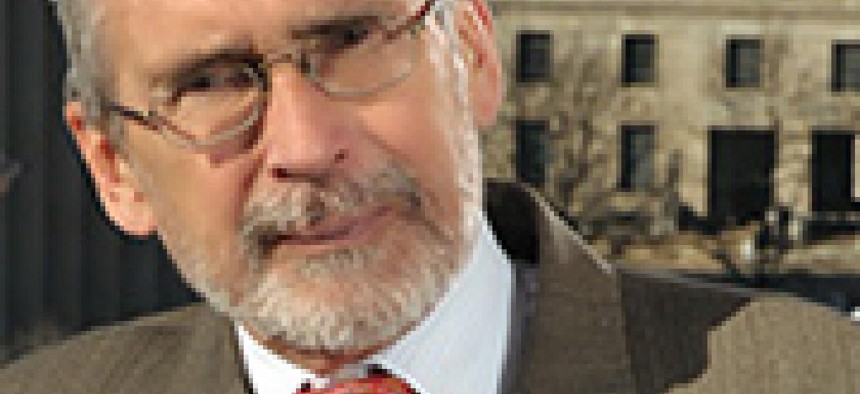Where are the bold ideas for remaking government?

In an era of formidable challenges, America needs formidable, and novel, approaches to address them.

Four years ago, I guided an 18-month initiative to develop a management agenda for the then-incoming 44th president of the United States. That initiative involved:
- A year-long seminar series to tap into the collective wisdom of experts with proven knowledge of how to handle the challenges of management in government.
- A partnership with The Public Manager and other journals to publicize and distribute findings and insights from the seminar discussions and individual experts.
- Close collaboration with other organizations, associations, universities, nonprofit groups, think tanks, and so on to jointly support innovative ideas to improve government and the delivery of services to the public.
- A website called NewIdeasforGovernment.org (now defunct) to which individuals from within and outside government were invited to submit new ideas to improve the management of government.
This year, I am involved with several good-government and academic associations that are similarly gathering ideas and initiatives to present to the new administration and Congress after the election in November. At a recent meeting here in Washington, D.C., several colleagues laid out their proposed report, which focused on the human resources arena. It was a nicely framed, well-researched and eminently reasonable report. But the audience’s reaction left me both surprised and chastened.
We hear again and again that government needs to change, that it needs to be better managed, that it needs to be flatter, more connected, less hierarchical. So why is our reform cupboard so bare?
We all know that our nation is facing challenging times. The lame duck Congress that will reconvene in November must keep the country from going over a fiscal cliff. Lawmakers must deal with the threat of sequestration, the expiration of the Bush-era tax cuts, a budget for fiscal 2013 to extend the existing six-month continuing resolution, and an extension of the federal debt limitations. At our current pace, in 2080, the total cost of government will be more than three times the revenue.
And there are other challenges: the continuing war on terrorism, increasing economic competition from emerging world powers such as China and India, rising energy costs, environmental concerns, and unknown new problems and threats. We hear again and again that government needs to change, that it needs to be better managed, that it needs to be flatter, more connected, less hierarchical. In other words, we need a 21st-century government.
That’s what our audience of fellows at the National Academy of Public Administration told us at our recent meeting. We are at a government management watershed, they said, and are hungry for initiatives that will remake the federal bureaucracy. So where are the big, bold ideas to do so, they asked? The words of Donald Kettl, dean of the University of Maryland’s School of Public Policy, rang in my mind. In the opening article from our 2008 forum on the need for a new management agenda, Kettl argued: “Never has American history seen a time when management has been more important but the stock of ideas has been so low.”
If we are at a watershed in modern government, where is the torrent of initiatives that will remake our bureaucracy? Where are the thinkers who will banish our 1950s-era federal processes and structures and remake Washington, D.C.? And why do our career and political leaders — intelligent, thoughtful men and women who have been educated at America’s finest institutions — seem so painfully and embarrassingly short of new ideas?
I need to think more about this myself. Why is our government management reform cupboard so bare? What do you think? E-mail me at abalutis@cisco.com.
Alan Balutis is senior director and distinguished fellow at Cisco Systems’ Internet Business Solutions Group.
NEXT STORY: Is there room in the executive suite for a CDO?


